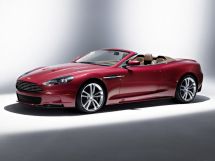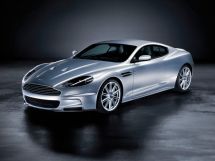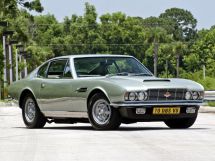
Acceleration to 100 at Aston Martin DBS
Content
Acceleration to hundreds is an important indicator of a car's power. The acceleration time to 100 km/h, unlike horsepower and torque, can actually be “touched”. The vast majority of cars accelerate from zero to hundreds in 10-14 seconds. Near-sports and souped-up cars with touring engines and compressors are capable of reaching 100 km/h in 10 seconds or less. Only a few dozen cars in the world are capable of reaching one hundred kilometers per hour in less than 4 seconds. Approximately the same number of production cars accelerate to hundreds in 20 seconds or more.
Acceleration time to 100 km / h Aston Martin DBS - from 3.4 to 8.5 seconds.
Acceleration to 100 at Aston Martin DBS 2018, coupe, 3rd generation
 06.2018 - p.t.
06.2018 - p.t.
| Modification | Acceleration to 100 km / h |
| 5.2 l, 715 hp, gasoline, automatic transmission, rear-wheel drive (FR) | 3.4 |
Acceleration to 100 at Aston Martin DBS 2007, open body, 2nd generation
 08.2007 – 12.2012
08.2007 – 12.2012
| Modification | Acceleration to 100 km / h |
| 5.9 l, 517 hp, gasoline, manual transmission, rear-wheel drive (FR) | 4.3 |
| 5.9 l, 517 hp, gasoline, automatic transmission, rear-wheel drive (FR) | 4.3 |
Acceleration to 100 at Aston Martin DBS 2007, coupe, 2rd generation
 08.2007 – 12.2012
08.2007 – 12.2012
| Modification | Acceleration to 100 km / h |
| 5.9 l, 517 hp, gasoline, manual transmission, rear-wheel drive (FR) | 4.3 |
| 5.9 l, 517 hp, gasoline, automatic transmission, rear-wheel drive (FR) | 4.3 |
Acceleration to 100 at Aston Martin DBS 1967, coupe, 1rd generation
 10.1967 – 05.1972
10.1967 – 05.1972
| Modification | Acceleration to 100 km / h |
| 5.3 l, 324 hp, gasoline, manual transmission, rear-wheel drive (FR) | 6 |
| 4.0 l, 286 hp, gasoline, manual transmission, rear-wheel drive (FR) | 8.5 |